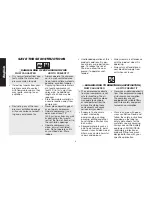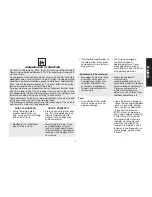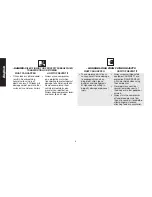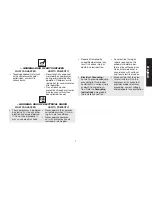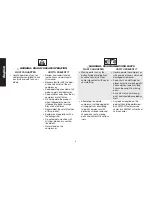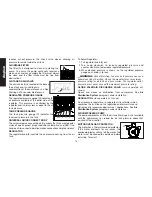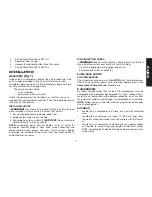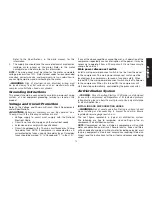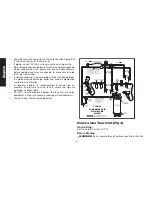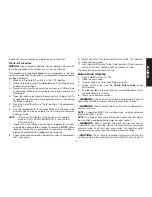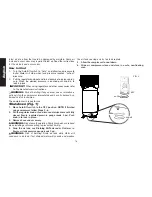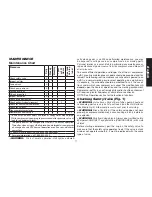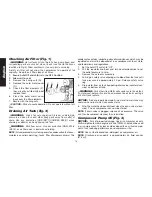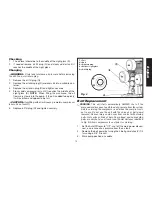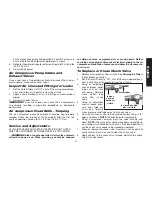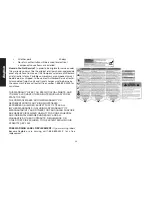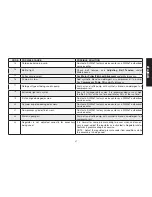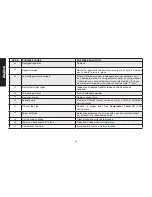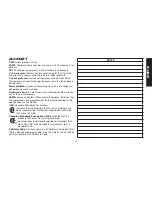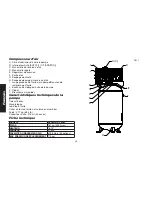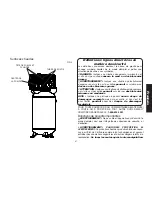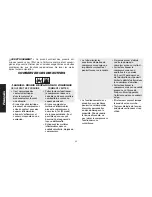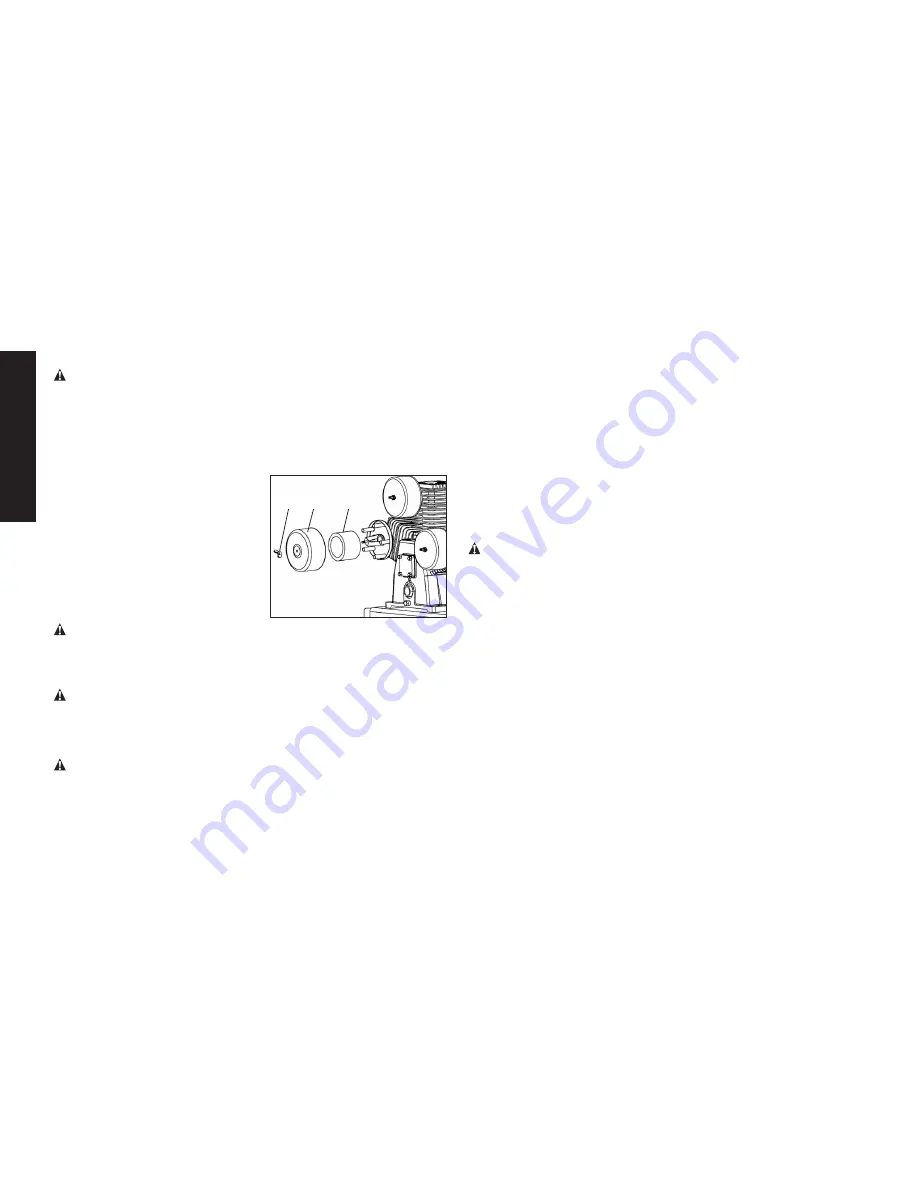
18
English
Checking Air Filter (Fig. 1)
WARNING:
Hot surfaces. Risk of burn. Tubes, pump head, and
surrounding parts are very hot, do not touch (see the Hot Surfaces
identified in Fig. 2). Allow compressor to cool prior to servicing.
A dirty air filter will not allow the compressor to operate at full
capacity. Keep the air filter clean at all times.
1. Ensure Auto/Off switch (B) is in the OFF Position.
2. Allow unit to cool.
N
O
P
3. Remove the 3 wing nuts (N).
4. Remove the outer metal covers
(O).
5. Check the filter elements (P) if
they are dirty or filled with paint,
replace them.
6. Place the outer metal covers
back over the filter elements.
7. Secure with the wing nuts.
CAUTION:
Risk of unsafe operation. Do not operate without air
filter.
Draining Air Tank (Fig. 3)
WARNING:
Risk of unsafe operation. Air tanks contain high
pressure air. Keep face and other body parts away from outlet of
drain. Use eye protection [ANSI Z87.1 (CAN/CSA Z94.3)] when
draining as debris can be kicked up into face.
WARNING:
Risk from noise. Use ear protection (ANSI S12.6
(S3.19) as air flow noise is loud when draining.
NOTE:
All compressed air systems generate condensation that accu-
mulates in any drain point (e.g., tanks, filter, aftercoolers, dryers). This
condensate contains lubricating oil and/or substances which may be
regulated and must be disposed of in accordance with local, state,
and federal laws and regulations.
1. Set the Auto/Off switch to “Off”.
2. Pull the regulator knob out and turn counterclockwise to set
the outlet pressure to zero.
3. Remove the air tool or accessory.
4. Pull ring on safety valve allowing air to bleed from the tank until
tank pressure is approximately 20 psi. Release safety valve
ring.
5. Drain water from air tank by opening drain valve (counterclock-
wise) on bottom of tank.
WARNING:
Risk of bursting. Water will condense in the air tank.
If not drained, water will corrode and weaken the air tank causing a
risk of air tank rupture.
NOTICE:
Risk of property damage. Drain water from air tank may
contain oil and rust which can cause stains.
6. After the water has been drained, close the drain valve (clock-
wise). The air compressor can now be stored.
NOTE:
If drain valve is plugged, release all air pressure. The valve
can then be removed, cleaned, then reinstalled.
Compressor Pump Oil (Fig. 4)
NOTICE:
Risk of property damage. Use air compressor oil only.
Multi-weight automotive engine oils like 10W30 should not be used
in air compressors. They leave carbon deposits on critical compo-
nents, thus reducing performance and compressor life.
NOTE:
Use synthetic blend non-detergent air compressor oil.
NOTE:
Crankcase oil capacity is approximately 33 fluid ounces
(976 ml).

